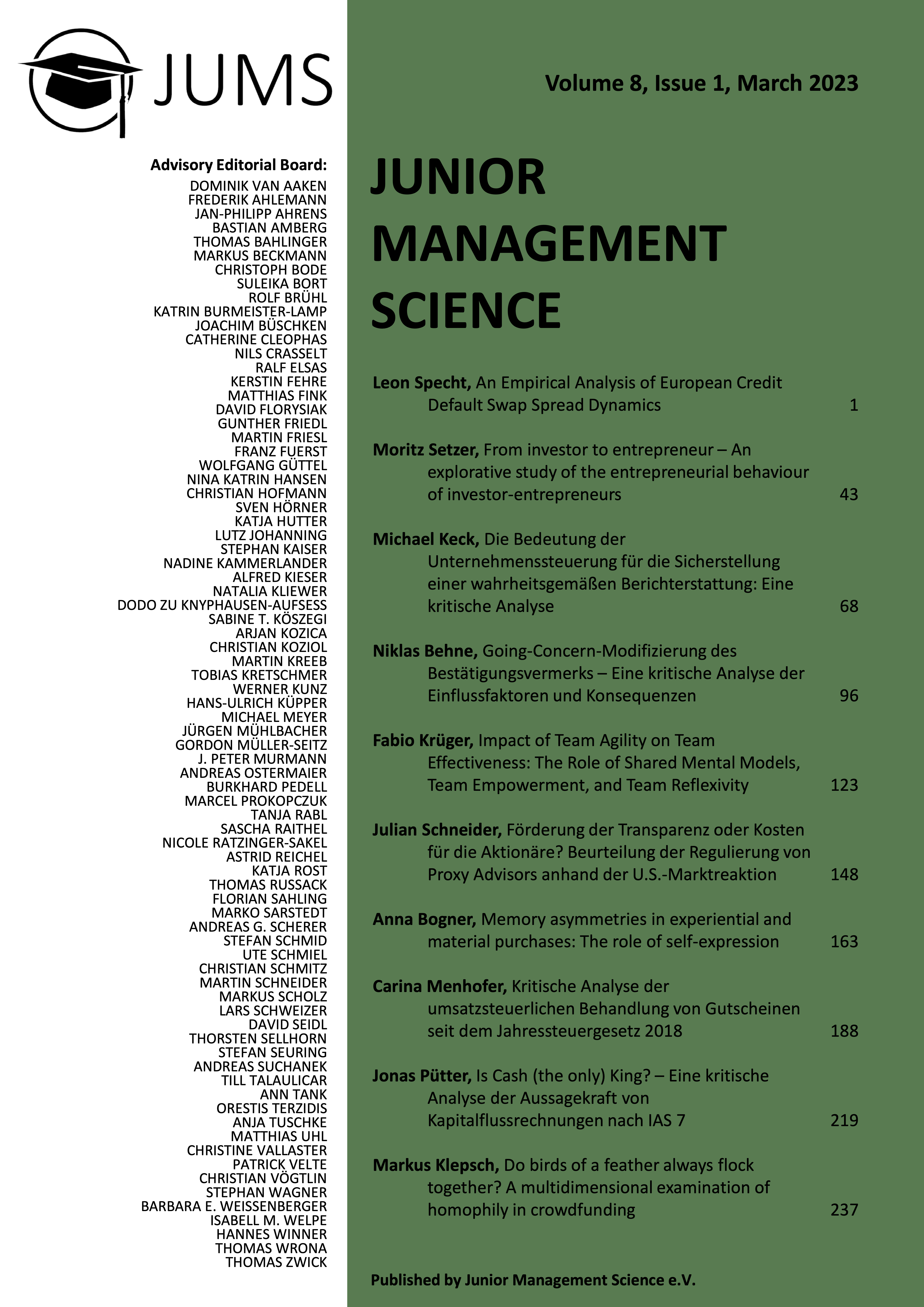Abstract
The SEC's decision to regulate proxy advisors triggers conflicting reactions. The intended increased transparency for shareholders is opposed to higher costs for obtaining information. This paper addresses the question of whether shareholders perceive the regulation of proxy advisors positively as an added value or negatively as a cost. An event study is used to examine market reactions to eleven events that influenced the likelihood of regulation adoption. The event study reveals a negative overall market reaction, suggesting that shareholders view regulation less as an added value through increased transparency and more as a detriment through added costs. Reactions to events that increase (decrease) the likelihood of adoption tend to be negative (positive). Moreover, market reactions are stronger the lower the share of institutional investors in a company. This paper contributes to the debate on proxy advisor regulation by being the first to provide empirical evidence on how shareholders respond to regulation.
Keywords: Proxy advisors; corporate governance; event study; information intermediaries.

This work is licensed under a Creative Commons Attribution 4.0 International License.

